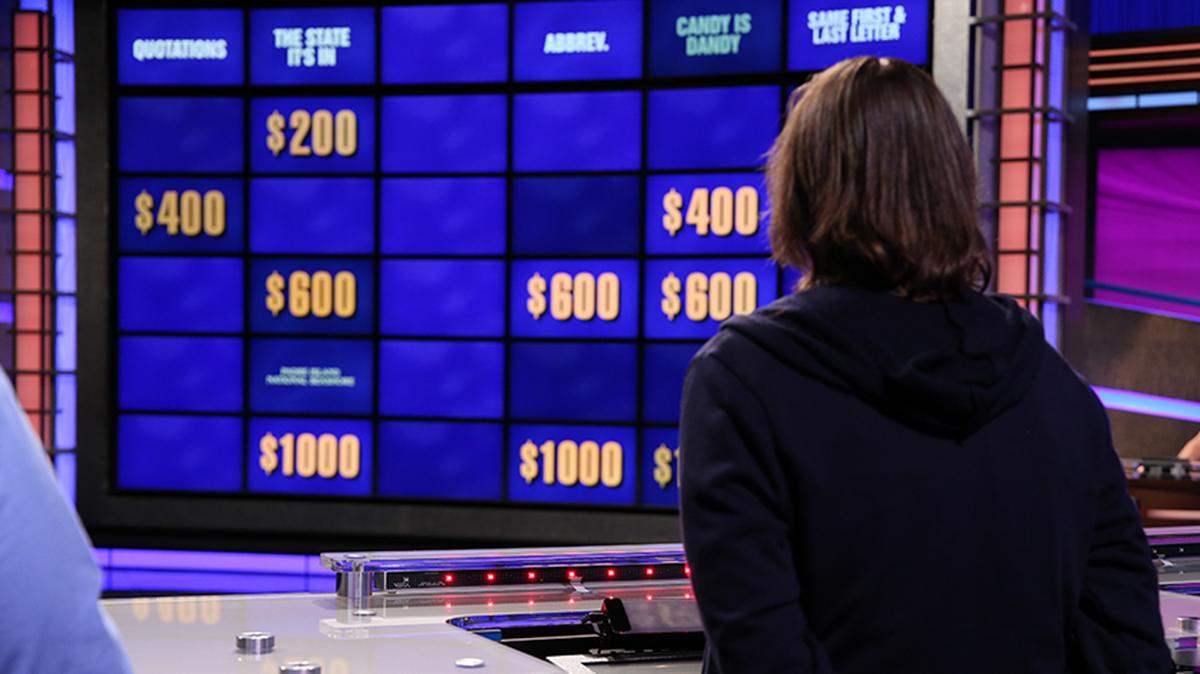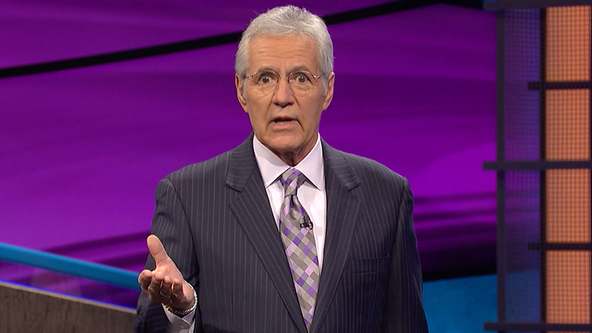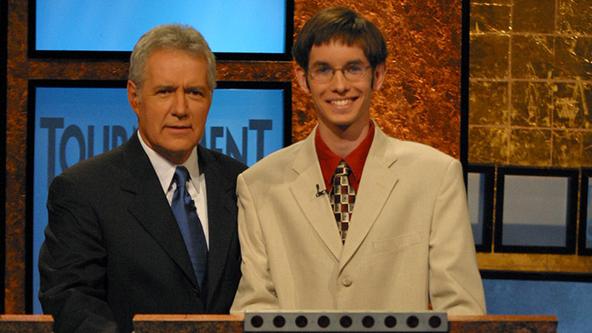Featured J!Buzz
If you watch Jeopardy! every day, you probably already have a good handle on how to play the game. But pressure has a way of turning perfectly coherent thoughts into something resembling scrambled eggs, so the more informed you are ahead of time, the better. Here are five rules you should know before you ever step behind a Jeopardy! podium:
1. Contestants may change their responses as long as neither the host nor the judges have made a ruling.
There’s no way to prepare for how nerves may affect you when the game is in play. For instance, have you ever seen a contestant blurt out a response, then give a “where-did-that-come-from” look? Don’t laugh! It happens. If you’re giving a response and suddenly hear your mouth saying something your brain wasn’t planning on – or forget to phrase your response in the form of a question – you can correct yourself; but you’ll have to be quick.
2. Correct responses must satisfy the demands of both the clue and the category.
Pay close attention to the category; it often contains a hint or, more importantly, a directive. Take, for example, the category “TEN”-LETTER WORDS in a recent game featuring Seth Wilson. One of the clues was, “Patrick Roy & Hope Solo played this position.” Seth’s response, “What is goalkeeper?” sounded right – after all, it’s a 10-letter word – but it didn’t satisfy the other conditions of the category. Notice the “TEN” in quotations? It was Rachel who came up with the correct response, “What is goaltender?” because it contained the word “ten.” Don’t overlook these golden nuggets. They are there to guide you.
3. If a contestant gives a response to a non-Daily Double clue in the Jeopardy! round that is not in the form of a question, the host will give them a reminder. However, if a contestant forgets their phrasing in the Double Jeopardy! round, during Final Jeopardy! or for any Daily Double clue, they will be ruled incorrect.
It can be tough to respond in the form of a question when the heat is on. Get in the habit by practicing every day. For example, when your kids ask, “What’s for dinner?” reply, “What is minestrone soup?” When the officer says, “Do you know why I pulled you over?” say, “What is running a stop sign?” You might get some funny looks and a traffic ticket, but by the time you’re on Jeopardy!, it’ll be second nature.
4. The minimum wager for a Daily Double in either the Jeopardy! or Double Jeopardy! round is $5. The minimum wager for Final Jeopardy! is $0.
Think all you need to do to win a game of Jeopardy! is know a lot of facts? Think again. Wagering the right amount at the right time can make or break a hot streak, or even a game. But whether you’re looking to put some distance between you and your closest competitor or just trying to limit your losses, the choice is all yours. So be prepared.
Read more about the controversial topic of wagering in this J!Buzz feature by 2003 College champ and wagering expert Keith Williams.
5. Jeopardy! is not a spelling test – unless, of course, the category requires it. Written responses to the Final Jeopardy! clue do not have to be spelled correctly, but they must be phonetically correct and not add or subtract any extraneous sounds or syllables. (Incidentally, the same rule applies to all responses on both the written and online tests.)
Not a spelling wizard? Breathe a sigh of relief. If you’re not sure how to spell something in Final Jeopardy!, sound it out slowly in your head and write it the way it sounds. If it’s misspelled, it will come down to a judgment call, but the closer you can get it, the better chance for a thumbs-up from the judges. For example, “Jepurdee!” would probably be an acceptable spelling in a Final Jeopardy! response. But please learn that one ahead of time.
Knowing the rules before jumping in is always a good idea. However, the judges get to make the final call in situations like these. That’s why they’re called judges!





